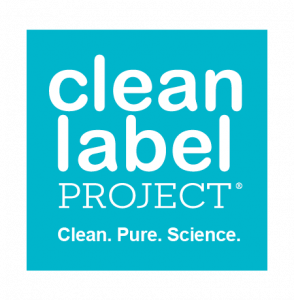New Report Finds Harmful Plastic Chemicals in Over Half of Popular Pediatric OTC Medications
Clean Label Project Study Detects DBP and DEHP in Common Children’s Medicines, Including 100% of Tablets Tested
DENVER, CO, UNITED STATES, October 8, 2025 /EINPresswire.com/ -- A new report released today by the Clean Label Project reveals that a majority of leading pediatric over-the-counter (OTC) medications contain industrial plastic chemicals known to pose serious health risks to children. The study found 55% of tested products were contaminated with DBP (di-n-butyl phthalate) and/or DEHP (di(2-ethylhexyl) phthalate), chemicals linked to reproductive and developmental harm.The findings come from an independent evaluation of 40 pediatric OTC medications from 32 of the top brands, selected from Amazon and Nielsen best-seller lists as well as leading natural and organic marketplaces. Clean Label Project partnered with Ellipse Analytics, an ISO 17025-accredited lab, to perform 4,880 contaminant tests, screening for phthalates, heavy metals, bisphenols, pesticides, and other industrial toxins.
“This research shines a light on an issue that many parents and healthcare providers simply aren’t aware of,” said Molly Hamilton, Executive Director of Clean Label Project. “Phthalates like DBP and DEHP are showing up in products specifically intended to support children’s health. Our goal is to provide transparency and data so families can make informed choices, and so manufacturers and regulators can take meaningful steps toward safer pediatric medications.”
Why It Matters
DBP and DEHP are phthalates, a class of chemicals widely used in plastics and coatings. They are recognized endocrine disruptors and are associated with serious health risks including:
- Reduced male fertility
- Developmental delays and behavioral changes in children
- Increased risk of obesity, allergic disease, and Type 2 diabetes
Children and pregnant women are particularly vulnerable to phthalate exposure, which can occur through ingestion, skin absorption, or inhalation.
Despite a 2012 FDA guidance discouraging the use of DBP and DEHP in pharmaceuticals, there are still no binding federal regulations limiting these chemicals in pediatric OTC medications.
Clean Label Project Urges Industry-Wide Reform
Clean Label Project is calling on:
- Manufacturers to eliminate phthalates from formulations and packaging
- Retailers to demand safer sourcing and greater transparency
- Regulators to enact enforceable standards protecting vulnerable populations
In addition, Clean Label Project is spotlighting brands that meet its rigorous safety benchmarks. Pediatric OTC products from Lolleez and Mommy Bliss have received Clean Label Project Certification for purity and safety.
Read the Full Report
To view the complete methodology, tested brands, and contamination breakdown, visit: www.cleanlabelproject.org
About Clean Label Project
Clean Label Project is a nonprofit dedicated to promoting transparency in consumer product labeling and holding manufacturers accountable through independent testing for environmental and industrial contaminants.
Kate Stuard
Clean Label Project
kate@dsjstrat.com
Legal Disclaimer:
EIN Presswire provides this news content "as is" without warranty of any kind. We do not accept any responsibility or liability for the accuracy, content, images, videos, licenses, completeness, legality, or reliability of the information contained in this article. If you have any complaints or copyright issues related to this article, kindly contact the author above.

